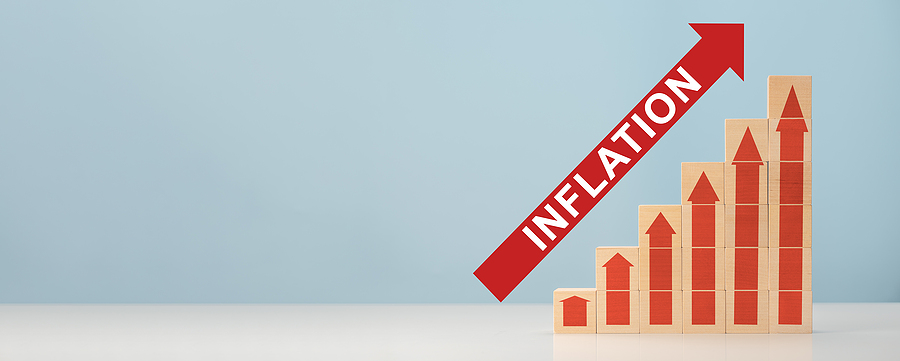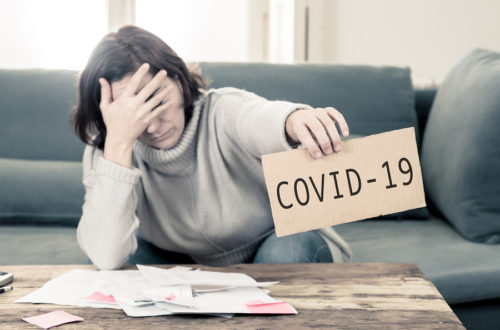The cost of living has continued to rise throughout the first half of 2022, leaving many consumers struggling to make ends meet. It seems the cost of everything has skyrocketed, from groceries to gas. As a result, three in five American consumers say they are living paycheck to paycheck. Many of these individuals are relying on credit cards to pay for necessary expenses, but unfortunately, adding to their credit card debt only complicates financial problems.
The following tips may help consumers who are struggling to stay afloat financial during this difficult time:
Negotiate a Lower Rate on Your Credit Cards
Credit cards notoriously carry high interest rates, which can make paying them off quite difficult. The Federal Reserve has tried to stave off inflation by increasing interest rates to curb demand. However, this only leads to higher rates for consumers. In fact, according to a recent study from Lending Tree, the average annual percentage rate (APR) on a new credit card is over 20 percent. If a consumer is on good terms with his or her credit card company, it may help to work directly with the credit card company to negotiate a lower interest rate. According to Lending Tree, 70 percent of those who asked for a reduction in their interest rate received it. The average decrease was approximately seven percentage points, which can end up being pretty significant for the cardholder.
Set up Autopay and Account Alerts
Another helpful tool for consumers is to use autopay to avoid missing any future payments. A recent study from VantageScore showed that, as credit card balances have increased, so have the number of payments missed on these accounts. To ensure this does not happen, consumers should set up automatic payments monthly, whether these be payments cover the entire balance or the minimum payment owed, or at least somewhere in between. These automatic payments take the funds directly out of the consumer’s bank account every month. It may be helpful for the cardholder to set up their own alerts on their phone or other device so that they know when the payment will be pulled. Regardless of whether an automatic payment is scheduled, the consumer should still check the account prior to the due date to ensure that the payment has been properly processed. Occasionally errors will occur, and it is always best to err on the side of caution in avoiding late fees and penalties.
Proceed With Caution When It Comes to Personal Loans.
Personal loans can be another useful way to pay down credit card debt. Consumers may decide to consolidate their multiple credit card balances, paying them off with a personal loan with a much lower interest rate. While personal loans can work in improving a person’s credit score and paying down debt, all of this progress can be quickly erased if the consumer continues to use the credit cards, creating a new balance. That will only leave the consumer with the personal loan balance to pay off, as well as the new credit card balance.
Avoid Buy Now, Pay Later Schemes.
The use of “buy now, pay later” or BNPL has become more popular over recent years. An Experian study found that four out of five consumers use BNPL to avoid credit card debt. Essentially, when a consumer is buying something now and paying later, he or she is purchasing the item on short term loans, paying off the item in installment payments over a short period of time. It can seem like an appealing option, but unless the consumer is extremely dedicated in making these payments, it can quickly backfire. In fact, BNPL products do not normally show up on someone’s credit report unless the person misses a payment. The consumer will not see a boost in his or her credit history from making payments consistently on the BNPL product, but they will quickly see a hit to his or her credit score if one or more payments are missed. Ultimately, if the consumer is not able to afford the product upfront, it may be best to avoid purchasing it altogether.
As bankruptcy attorneys, we see credit card debt as one of the most common problems facing those with serious financial challenges. It is not surprising with the high interest rates, unreasonable fees, harassing debt collection calls, penalties and never-ending minimum payments that do not even make a dent in your actual debt.
Filing for bankruptcy is a viable option for those struggling with insurmountable credit card debt. Chapter 7 is the fastest form of consumer bankruptcy and forgives most unsecured debts like credit card debt, medical bills, and personal loans. There are certain qualifications a consumer must meet in regard to income, assets and expenses to file for Chapter 7 bankruptcy, which is determined by the bankruptcy means test.
Please click here to read more.
If you have questions on this topic or are in financial crisis and considering filing for bankruptcy, contact an experienced Miami bankruptcy attorney who can advise you of all of your options. As an experienced CPA as well as a proven bankruptcy lawyer, Timothy Kingcade knows how to help clients take full advantage of the bankruptcy laws to protect their assets and get successful results. Since 1996 Kingcade Garcia McMaken has been helping people from all walks of life build a better tomorrow. Our attorneys’ help thousands of people every year take advantage of their rights under bankruptcy protection to restart, rebuild and recover. The day you hire our firm, we will contact your creditors to stop the harassment. You can also find useful consumer information on the Kingcade Garcia McMaken website at www.miamibankruptcy.com.


